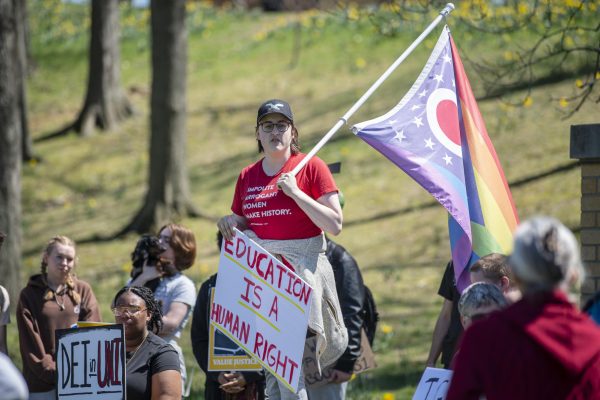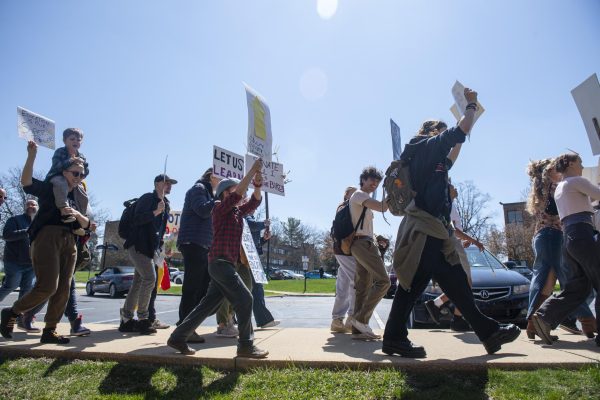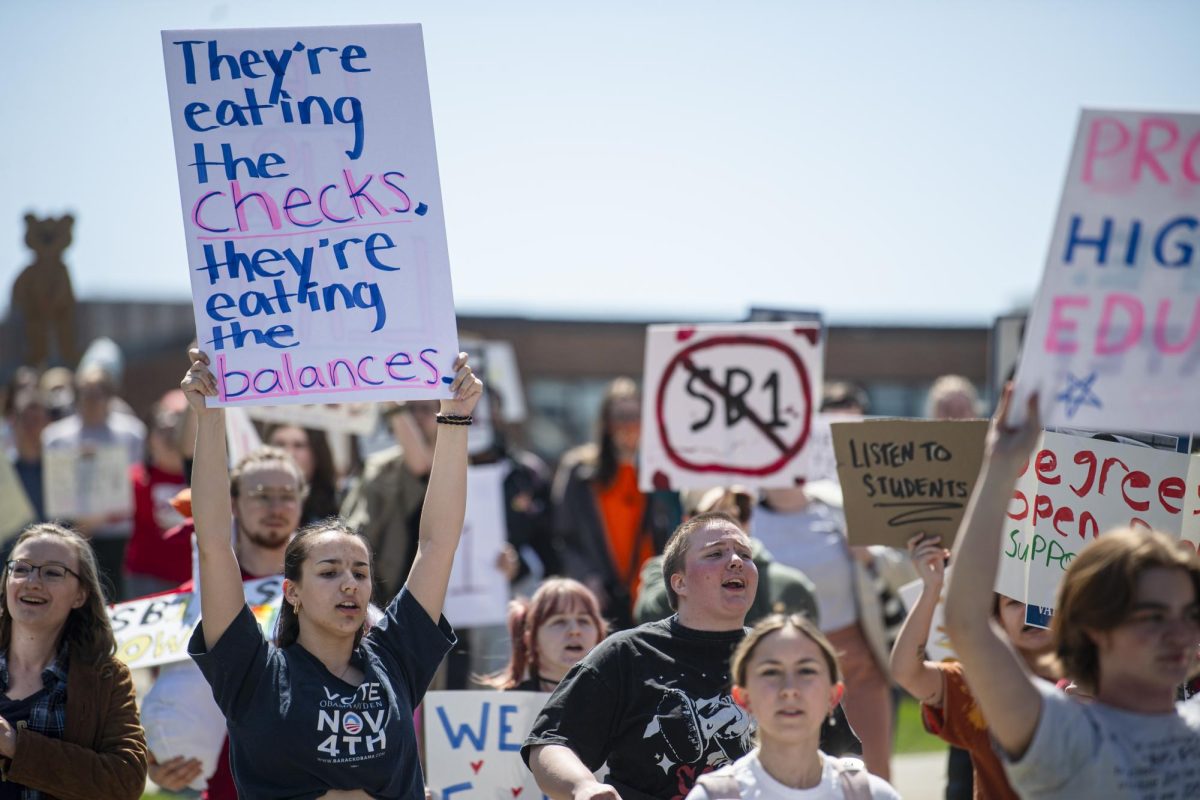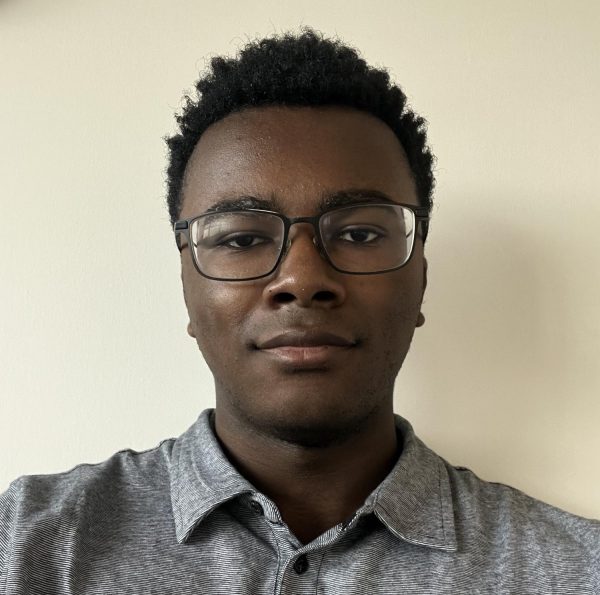Dozens of students, faculty, staff and alumni marched across campus and rallied at the Victory Bell Thursday to demonstrate against Senate Bill 1 and federal initiatives against higher education.
It was part of the National Day of Action for Higher Education, where university groups coordinated and mobilized to fight back against “anti-democratic pressures” from federal and state actions regarding higher education. The Kent Higher Ed Coalition, a mix of Kent State community members, organized the protest.
The coalition came together after Ohio Gov. Mike DeWine signed SB1 into law, which brought together individuals from the Kent State United Faculty Association and various student organizations for purposes of solidarity, protection and shaping the future of higher education, according to Ashley Nickels, an organizer of the coalition and a professor of peace and conflict studies. She added that herself and other faculty members attended the protest as private citizens, and not in a capacity as faculty members.
“We recognized that in order for us to do this work and hold each other in care and support, we needed to do it together,” Nickels said. “Working together means that everyone can be a part of it and feel like their voices are heard without having to be front and center.”
The demonstration included signs, chanting, speakers, teach-ins and a petition to repeal SB1 on the Ohio ballot.
Nica Delgado, vice president of the Ohio Student Association and a senior anthropology major, opened up the speaker series. She called SB1 “God awful” and cited its high opposition from students and faculty.
“There’s no reason we should be here grinding tooth and nail to get a petition passed when over 1,700 people submitted opponent testimonies,” Delgado said. “Turn your rage into action.”
The second speaker, Madeline Barber, a graduate student studying theater design and technology, described the importance of education.
“Education is a fundamental human right,” she said. “There is nothing that this legislature, government or oligarchy can do to take that from us.”

Carter Hubbard, a junior musical theater major, said the protest provided them with a glimpse of hope despite their fear for the future.
“I am scared that my history will be erased,” they said. “It fills me with hope and joy to see that people are fighting this.”
The group also expressed concerns over SB1’s implications for grants, how it will change course curriculums and discussions and the importance of community.
Following the speakers, teach-ins began to inform demonstrators about SB1 and the history of attacks on diversity and higher education. Deborah Smith, president of Kent State United Faculty Association and professor of philosophy, opened the teach-in to discuss the abnormalities and negatives of SB1.
Smith said the bill will cripple faculty unions by taking away their ability to negotiate terms and conditions of employment. She also said SB1’s goal of empowering conservative voices will have the wrong effect.
“It’s definitely presented as if it’s a free speech bill, but it promotes the free speech of a certain group by censoring other people and the university as a whole,” Smith said. “It’s absolutely designed to censor certain perspectives.”
Smith also said SB1 will limit intellectual diversity and pointed to how it stemmed from Senate Bill 83. According to her, administrators are also scared of speaking out over the bill for fear of losing government funding. Smith concluded her teach-in discussion by encouraging all to know their rights and to use their voices to be heard.
“We can’t allow ourselves to be censored either out of ignorance or fear,” she said. “Regardless of how scared and vulnerable we feel, we have to stand up and meet this moment.”

Alison Caplan, director of the May 4th Visitors Center, and Mwatabu Okantah, department chair and professor of Africana Studies, led the next teach-in. They discussed historical examples of Kent State students protesting and compared them to current demonstrations against SB1.
“We have seen this picture before,” Okantah said. “If you don’t know your history, you can miss your historical moment. For you young people, this is your historical moment.”
Okantah also discussed his personal experience as a Kent State student and the historical struggles of African Americans. He went on to describe the power students hold in society when it comes to creating change.
“You need to understand the value of your own lives,” Okantah said.
Near the end of his talk, Okantah encouraged students to take their education seriously and envision a hopeful future.
“What you do now is going to create a better Kent State for the students who come here after you,” he said. “You will not experience your vision, but they will.”
John Engoglia is a beat reporter. Contact him at [email protected].




